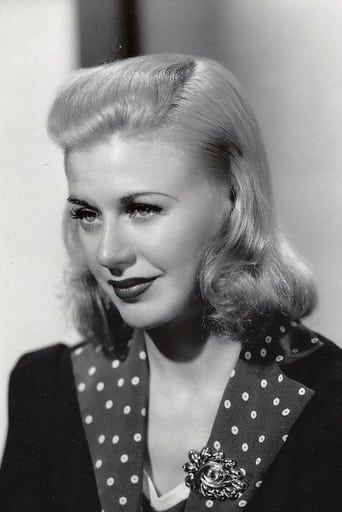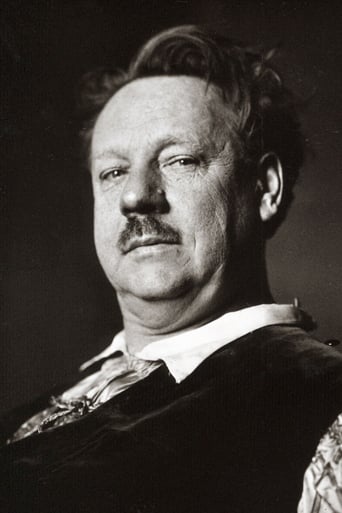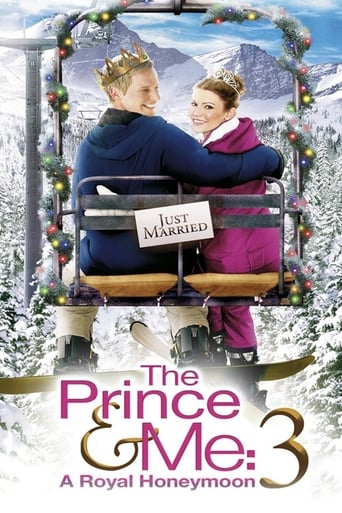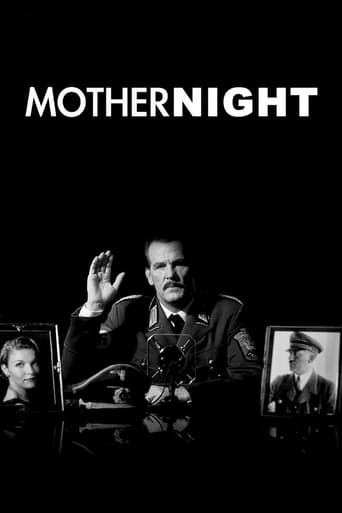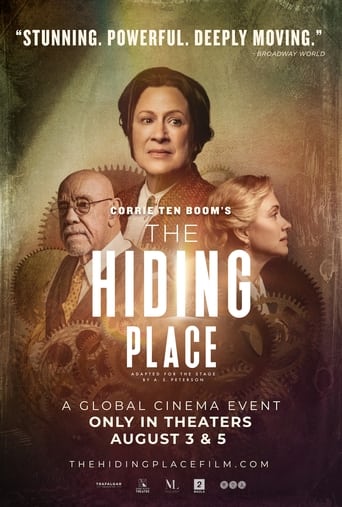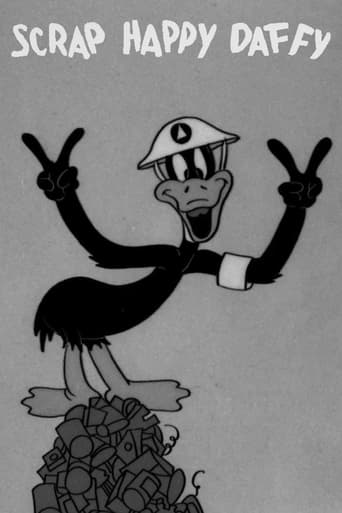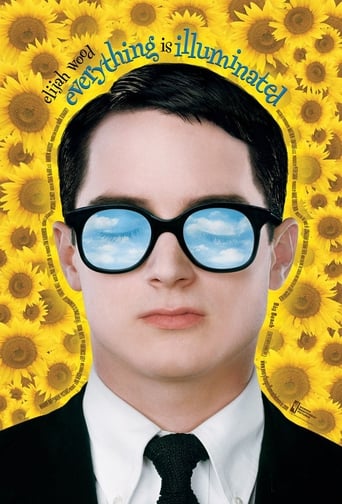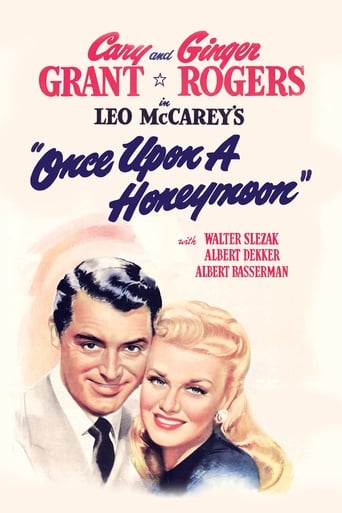
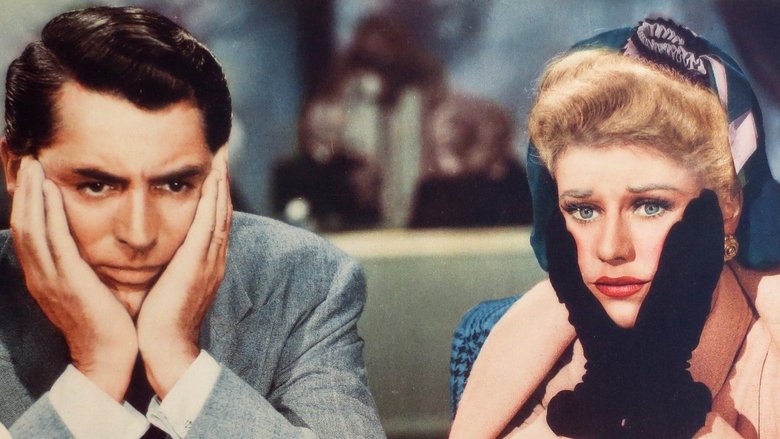
Once Upon a Honeymoon (1942)
A radio correspondent tries to rescue a burlesque queen from her marriage to a Nazi official.
Watch Trailer
Cast
Similar titles
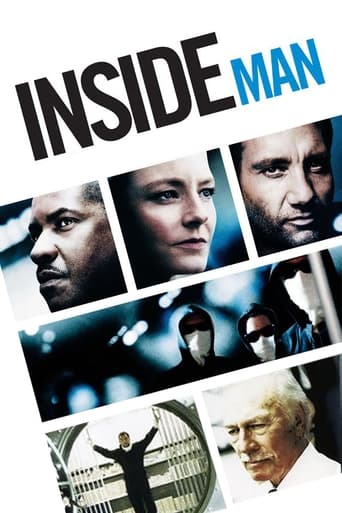
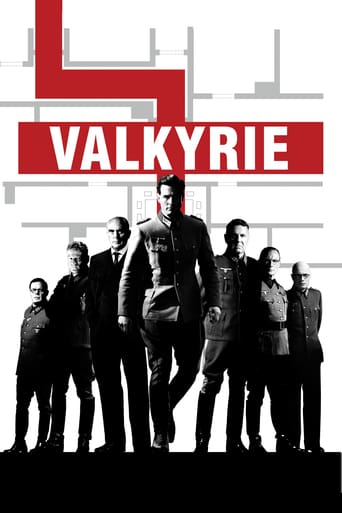
Reviews
Absolutely Fantastic
It's a good bad... and worth a popcorn matinée. While it's easy to lament what could have been...
The acting in this movie is really good.
Each character in this movie — down to the smallest one — is an individual rather than a type, prone to spontaneous changes of mood and sometimes amusing outbursts of pettiness or ill humor.
I found this film very,very disturbing. I did not see the humor at all, nor the naivety or the selfishness of privilege. The Baron's fat ass bending over...the references to the fall of countries. The repartee between Grant and the Captain playing Bridge. The photographer and the Baroness speaking in dialects and her benign reaction to his death. I thought I would loose my mind watching this. WTF!!! Now I know that today's world is no weirder than 50 years ago. God have mercy on us.
In 1942 the United States had only just entered World War Two, with the people trying their best to come to terms with a conflict which three years previously had seemed like a remote European war, with little or no importance to them. This was the basis of the America First Movement, which flourished in the late Thirties.ONCE UPON A HONEYMOON was designed to influence public opinion by showing how much the Nazi colonization of Europe mattered to everyone in the world. The basic plot is straightforward: former showgirl Kathie O'Hara (aka Katherine Butt-Smith) (Ginger Rogers) is about to marry the Baron Franz von Luber (Walter Slezak) without realizing that he is a Nazi agent masquerading as an Austrian patriot. Campaigning journalist Pat O'Toole (Cary Grant), on an assignment to investigate O'Hara's past and present for American readers, acts as the voice of reason as he tries to set her right. The task proves impossible at first, but in a series of picaresque adventures in Poland, Czechoslovakia, and France, she comes to understand what a mistake she has made.Leo McCarey's film contains certain flabby moments - especially in a sequence ostensibly taking place in Paris, when O'Toole and O'Hara confess their love for one another. There are also some overt scenes of propaganda that interrupt the plot, especially when O'Hara encounters American spy Gaston le Blanc (Albert Dekker). On the credit side, however, there are some truly delightful comic sequences, no more so when Grant poses as O'Hara's dressmaker and tries to take her measurements. He makes every effort to avoid embarrassment, and by doing so ties himself into knots both physically and verbally. Grant and Rogers's playing of this sequence is masterly, with Rogers's deadpan countenance contrasting with Grant's facial contortions.Walter Slezak makes a convincing villain, his smooth, gentle exterior concealing a ruthless personality. He encounters O'Toole at a Paris café and backs the journalist into a corner: if O'Toole does not broadcast on the Nazi Party's behalf, then O'Hara's future cannot be guaranteed as she will be handed over to the Gestapo. Slezak's voice hardly rises above a whisper, yet the threat remains - despite his outwardly noble nature, O'Toole will have to submit to the Baron's wishes.ONCE UPON A HONEYMOON is certainly a period-piece, but it is still of interest, if only as an example of how versatile an actor Grant actually was, straddling the boundaries between comedy and straight drama with consummate ease.
Leo McCarey helms this 1942 lark, whose moods and genre conventions---saccharine romance, espionage adventure, screwball farce and war-time propaganda---swing to and fro so regularly that it's difficult to be bored even when the tipping scales of narrative contrivance become somewhat stressful at times. It's soapboxy-er than its early blitheness suggests, and at one point, the customary lead comic duo is mistaken for Jews and have a close shave with quite a grim fate. At times, because of the nonsensicality of the wildly contrived plot, the brashness of swastika hands on clocks and downer developments initially feel mislaid before they're consistently salvaged by a highly competent group of surprisingly naturalistic and genuinely funny performers, but meets its challenges admirably when it matters.Vienna, 1938. Ginger Rogers plays Katie O'Hara, a Brooklyn dancer who's flown off to marry the rich and high-ranking Austrian Baron Von Luber, a Nazi VIP on the sly, for status and prosperity. Chin dimple extraordinaire Cary Grant plays hyper-transatlantic correspondent Pat O'Toole, who receives a job as a radio commentator to obtain a rare interview with the impending baroness to expose the Baron as a Nazi undercover. The Baron is played by Walter Slezak, that indelible character actor who managed to get pigeonholed as cunning Nazis. You may recognize him from Hitchcock's Lifeboat. Pat's not deterred by Katie's unwillingness to be questioned, and manages to meet her posing as a tailor.Obviously, the reporter becomes smitten with Katie and frantically attempts to disabuse her regarding her fiancée. A turning point slams into this happy-go-lucky buffoonery when Hitler takes Austria, and Katie begins to learn the truth about her new husband's dealings. The two brash Yankees team up and go on the lam through Norway, Holland and Belgium before sudden sabotage missions are sprung on them and create grave dramatic tension. "This is the sort of thing that can make a man a Republican!" he huffs.I had my doubts about Ginger Rogers. Not having seen many of her best known films such as those with Fred Astaire, I thought she may prove yet another example of how incomparable Irene Dunne was alongside Archie boy. About forty minutes into Once Upon a Honeymoon, I was firmly disabused of my presumptions. She has an inborn knack for being natural in a way that even transcends the stagy tenets of the Golden Age, saying a lot without saying much, and saying something different with her face than what she's saying with her mouth. I can't say this excuses the inanity of Archie earlier on managing to trick her so effortlessly into thinking straight vodka is a glass of water, but overall, she's not an uncomplicated Dumb Blonde Type present only to hang off Cary Grant's shoulder. McCarey takes the time to photograph her surprisingly emotive disillusionment about the state of affairs around her.I'm frankly willing to forego any criticisms or dismissals of any moments that border on cornball or lugubrious purely for reward of the scene where O'Toole and Von Luber finally happen upon one another and have a man-to-man sit-down. It's one of those delicately cool scenes where two characters hold their cards firmly against their vests, but say just enough and share just enough sidelong glances to be satisfied of the other's hand. It's an exciting scene that raises the stakes and ratchets up the tension in a subdued, completely unexpected way. In fact, McCarey and his cast are so graceful that it only falls apart when it finally reaches the bungled ending, which I suppose is what happens when you try to balance propaganda and slick storytelling. Regardless, though quite the opposite of cynical or acerbic, it has a streak of the spunk and cunning of a Billy Wilder film, or the "shpontanuity," as one of the Baron's comrades suggests.
Man I wanted to like this one but by the end, I was glad it was over.This one needed a coherent script and a whole lotta tightnin'. You know what defrag'n a hard drive is right? Well this film needed some of it. There was stuff missin, outta place and in the wrong place.There are so many scenes where Grant and Rogers don't say a word and I sat watchin' thinking'.."shouldn't there be some dialog?". My guess is the screenwriter won the job from a creative writing contest. The set-up on some of these scenario's were just like.."Huh?". There was no preparation.Grant is suppose to be getting the scoop on Rogers new husband, who happens to be a closet Nazi, but you really never know if he wants the story or not. He's either following her around and then leaving her to go do some Allied broadcasts for some country, then he's back with her again...blah blah blah. Gingers Rogers gets overlooked for he comedic stuff. I find her far more enjoyable to watch in those roles than the Fred Astaire dancing stuff. (For an example see "Vivacious Lady").Man this one needed a re-write. Not an enjoyable watch.

